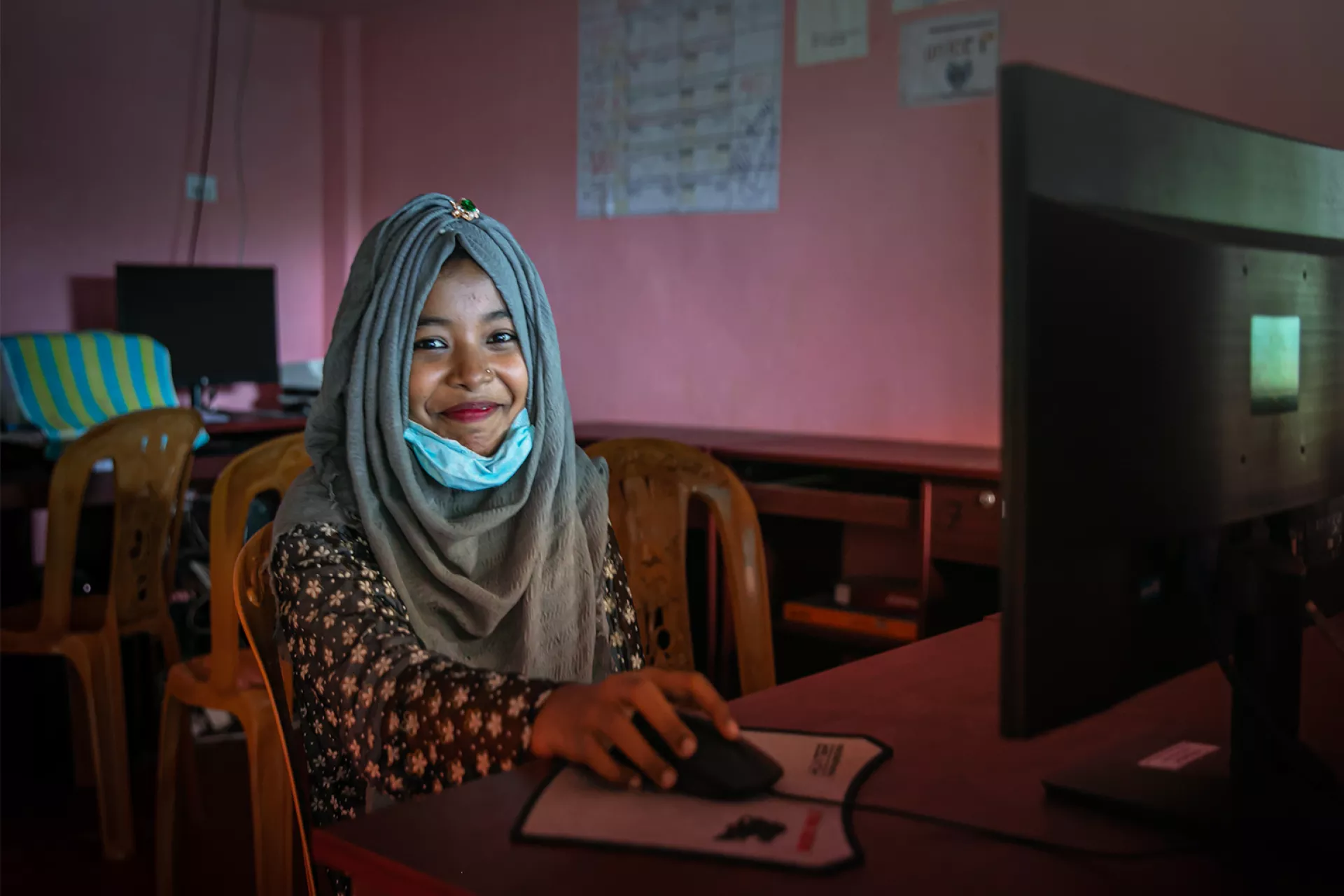GenU Bangladesh
Through innovations ranging from the Alternative Learning Programme to a curriculum overhaul, GenU Bangladesh is rapidly realizing its ambition to skill 17 million young people by 2025.

Despite emerging skills and training opportunities, a gender skills divide persists in Bangladesh. To address the skilling needs of young people – and young women especially – GenU Bangladesh has developed flagship innovations and a gender-transformative curriculum.
Since its launch in 2019, GenU Bangladesh has been advancing its ambitious agenda to skill and connect 17 million young people to livelihoods and active citizenship by 2025.
Youth aged 15–24 years make up nearly 20 per cent of the total population. Despite steady progress in education, 53 per cent of school age children are not on track to complete secondary school and attain basic skills. The skills mismatch is leading to high unemployment and underemployment rates as well as economic inactivity among youth: 27 per cent of youth are not in education, employment or training. Girls and young women suffer most in this respect.
Innovations from the country include the Alternative Learning Programme (ALP), which has been further developed and scaled up following a successful pilot. ALP gives out-of-school adolescent girls at risk of child marriage foundational literacy, vocational skills and on-the-job training to enter local job markets. ALP is being implemented by BRAC, the International Labour Organization (ILO), UNICEF and a private sector consortium.
Inspired by GenU South Africa, GenU Bangladesh launched a digital Career Hub in Sylhet (with plans for scale up across Bangladesh). This aims to vastly improve job matching between young people and employers in urban and semi-urban areas. Meanwhile, Generation Parliament continues to have strong support, with 1.2 million young people engaging virtually with the programme in 2021.
By partnering with the Government of Bangladesh, GenU will benefit over 12 million students by 2025 via a gender-transformative, skills-based and market-relevant curriculum to better prepare them for the jobs of today and the digital future.
How it works
To tackle the disconnect between education, training and skills, youth employment opportunities and market needs, the GenU Bangladesh Steering Committee engages representatives from:
- the public sector
- business
- major chambers of commerce and industry associations
- multilateral and bilateral development partners
- civil society
- youth organizations.
A GenU Foundation Partner Group brings about stronger coordination and collaboration between the key stakeholders and partners: UNICEF, ILO, the World Bank, the United Nations Development Programme (UNDP), BRAC, the Metropolitan Chamber of Commerce and Industry Dhaka and JAAGO Foundation.
The GenU Secretariat, hosted by UNICEF with ILO and UNDP participation, leads on strategy and the pursuit of national-level impact and scale by leveraging public-private-youth partnership.
Economic inactivity is high among youth in Bangladesh – and among young women especially. Through innovations ranging from the Alternative Learning Programme to a curriculum overhaul, GenU Bangladesh is rapidly realizing its ambition to skill 17 million young people by 2025.
